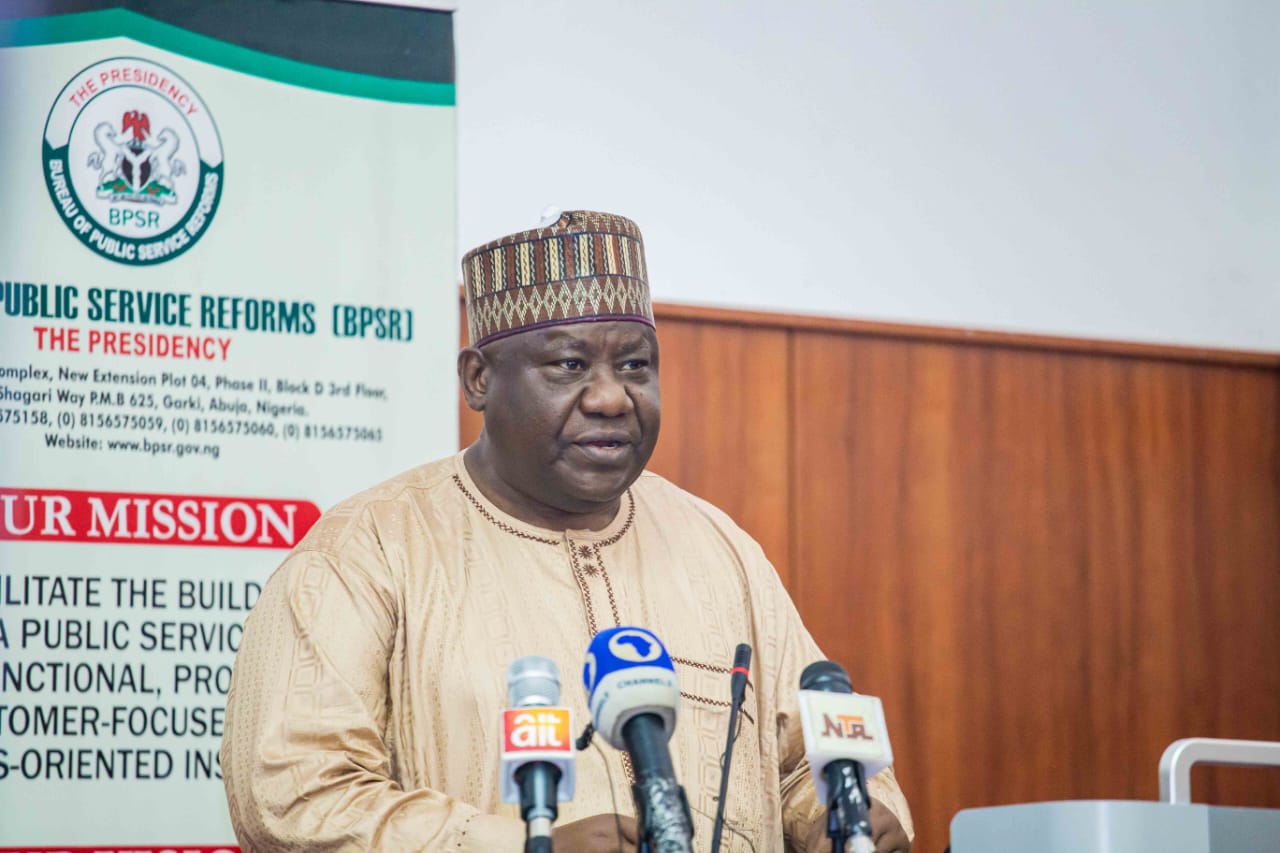The Director General of the Bureau of Public Service Reforms, BPSR, Mr. Dasuki Ibrahim Arabi, has emphasized that there is a need to evaluate the successes, challenges, and areas requiring improvement in Nigeria’s public service reforms to enhance efficiency and productivity.
He stated this at a one-day roundtable organized to discuss ways to review and improve public service reforms. The event took place in Abuja recently.
According to him, efficient and effective implementation of public service reforms is critical to the success of President Bola Ahmed Tinubu’s Renewed Hope agenda.
Arabi explained that public sector reforms are aimed at improving efficiency and productivity of the public service.
He said their BPSR has put in place benchmarks as compliance with the Freedom of Information quota on the websites of ministries, departments, and agencies of government to give us the privilege and the space to assess the performance of MDAs towards meeting the commitment of Nigeria to OGP and the Freedom of Information law.
“We have also developed the self-assessment tool which was introduced by us to improve the quality of public service, give government the space to know the status and position of ministries, departments, and agencies of government.
“At the end, we identified the strengths and weaknesses which we submit reports to the federal government to enable them to take decisions to strengthen and improve the position of these institutions,”he said.
Mr. Dasuki Arabi further disclosed that their Bureau developed and improved, while also revising the national strategy on public service reforms after every three years.
His words: “For those of us that have not come across the document, the document is broken down into three pillars, an enabling institutional and governance environment, which is pillar one, pillar two, an enabling socioeconomic environment, pillar three, public financial management reforms, and pillar four, civil service reforms.
“All of these aim to reintegrate and transform the public service into an efficient, productive, incorruptible, and citizen-centered institution with the capacity to deliver government policies and programs.
“Upon the review of this strategy, a monitoring and evaluation framework was developed to enable us monitor and track performance of ministries, departments, and agencies of government vis-à-vis the expected outcomes from these agencies.
“It may interest all of us to note that the Bureau, working with other agencies of government, have done quite a lot of work around institutionalization of freedom of information in Nigeria, addressing the administrative burden on the implementation of Treasury Simple Account, the review and reaction to challenges vis-à-vis Financial Reforms Act 2004, Presidential Executive Orders, quality of service delivery in public service, impact of border reforms and implementation in Nigeria, anti-corruption, transport reforms, education, ICT, tackling unemployment, promotion of OGP in Nigeria, and federal, state, and local governments”.
The Chairman of the Federal Civil Service Commission, Prof. Tunji Olaopa, in his speech, observed that BPSR represents a paradigm shift in reform management in Nigeria.
He said: “Prior to BPSR, reform efforts were typically structured as long-term, blueprint-driven processes, such as the Nduji Commission in 1972, Dr. Phillips’ 1984 study, and the Abbas-Ndudja reforms. These reforms were carried out through commissions and study groups, often producing reports after many years.
“With BPSR, however, we’ve transitioned from blueprint-based reform to a model of continuous learning and incremental improvement. We now recognize that change is constant, and thus we must continually reassess and adapt to new challenges. BPSR’s role is to serve as a dynamic, multidisciplinary platform that brings together experts in change management, project management, and public service.
“BPSR’s journey began with the UNHCR’s establishment of the Public Service Reform Unit in 1974, which later evolved into the Management Services Department (MSD), and later the Management Services Office, which I led”.
Olaopa disclosed that the purpose of BPSR is to sustain reform dynamics through ongoing research and studies, identify institutional problems within MDAs, and develop frameworks for change management.
“It is also responsible for helping MDAs design and implement their reform agendas, build capacity, and ensure effective monitoring, evaluation, and accountability”.
Aliyu Umar, FNIPR,FIIM
Head, Strategic Communication(BPSR)
22nd/ November/2024.

